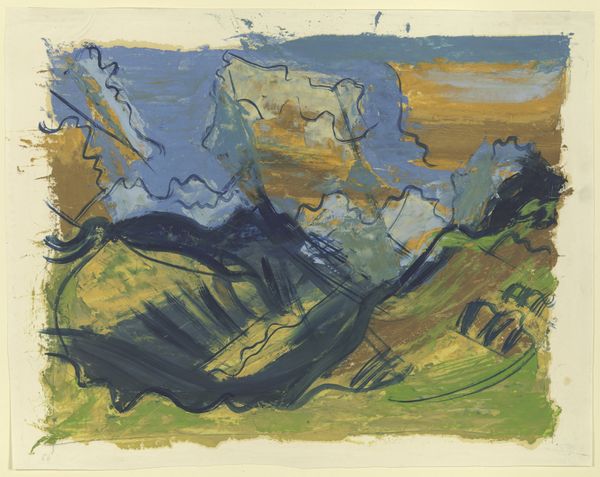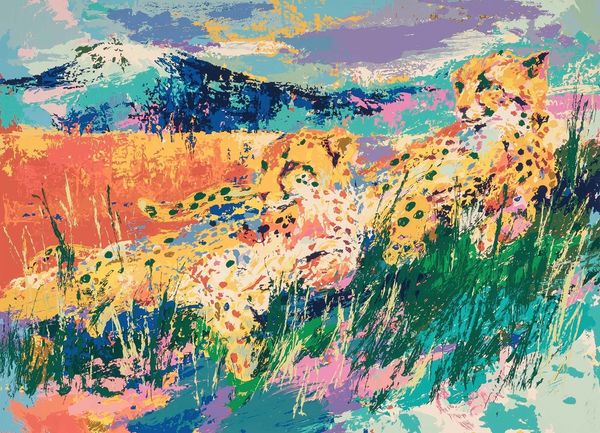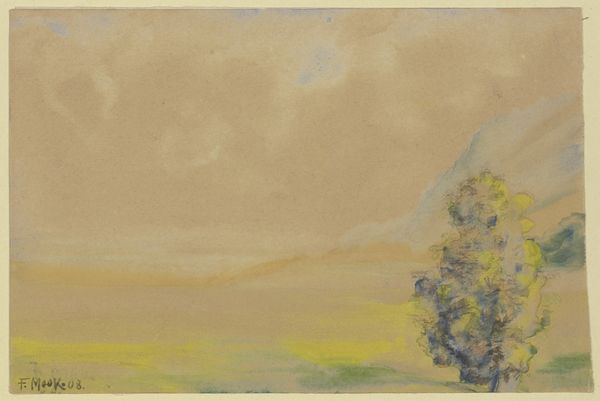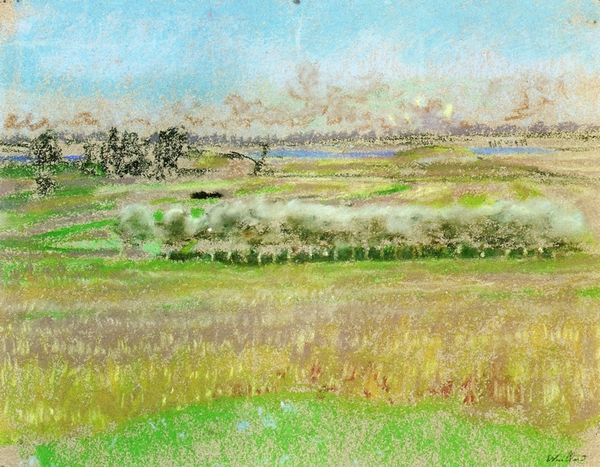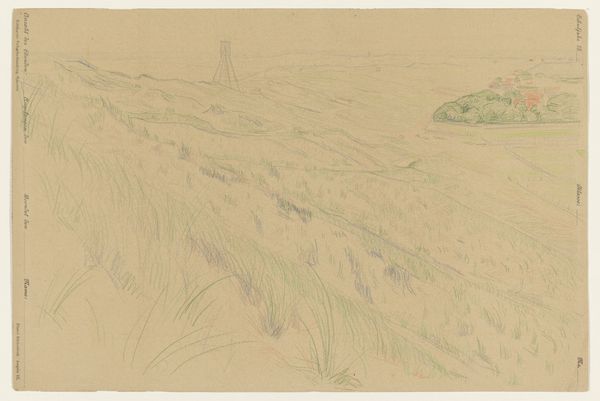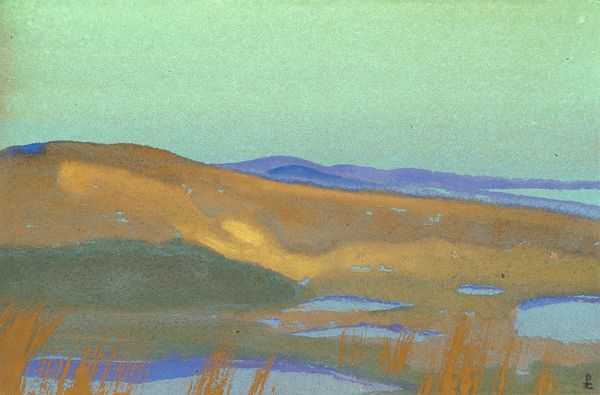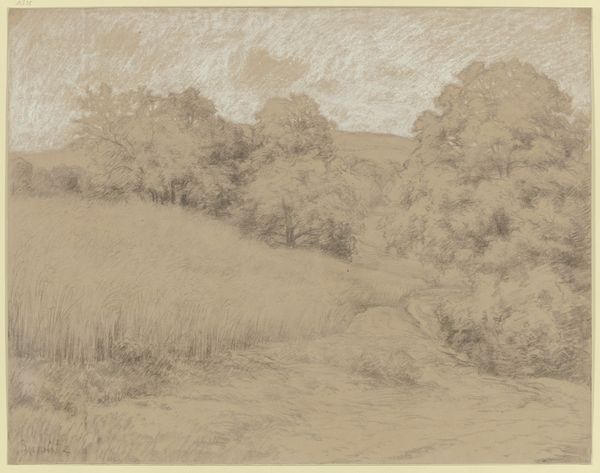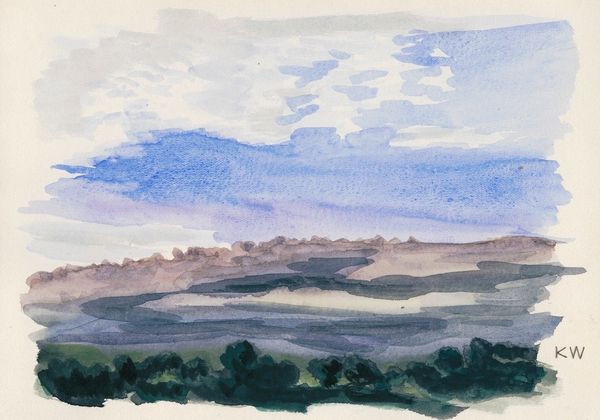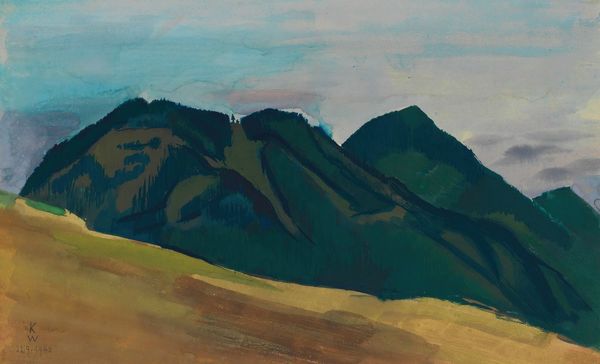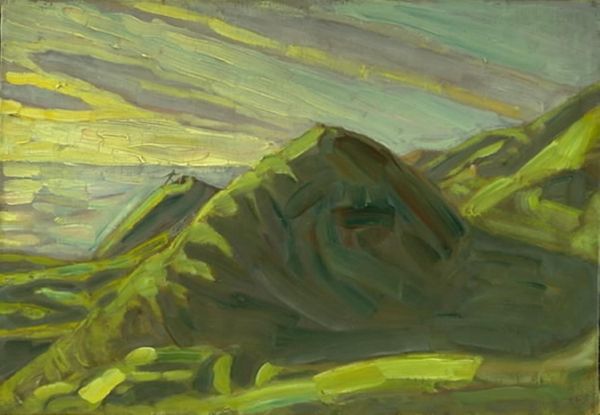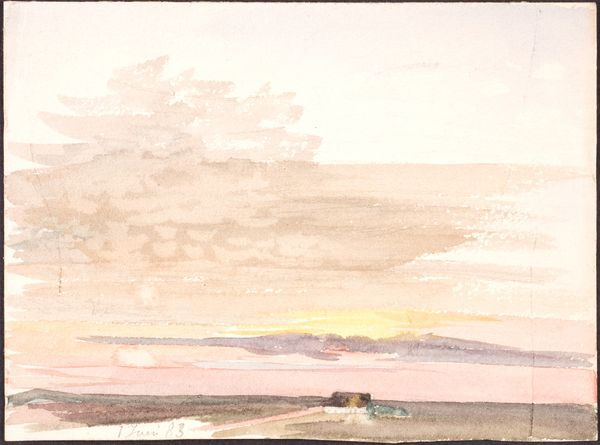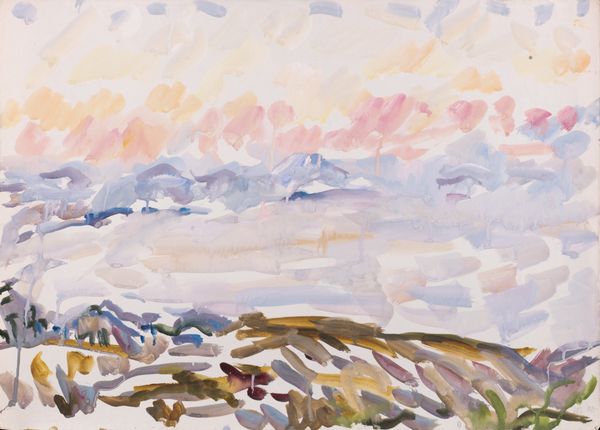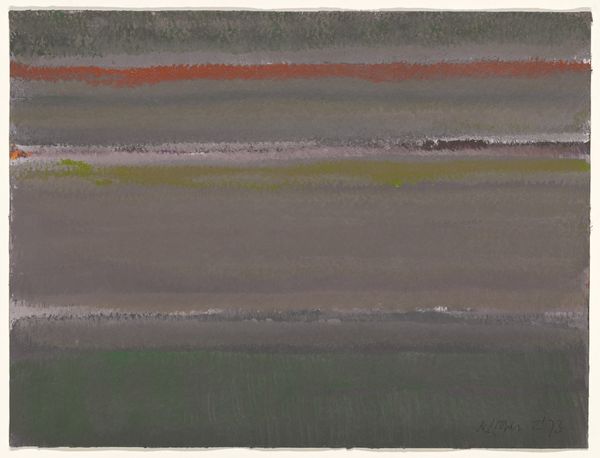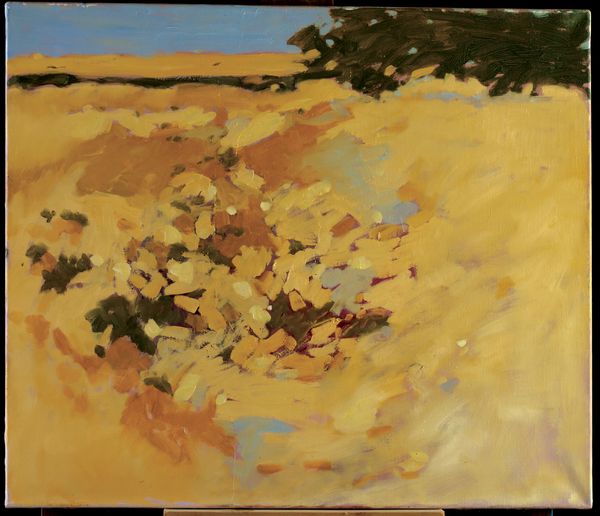
# print
#
landscape
#
nature
#
abstraction
#
nature
#
modernism
Copyright: National Gallery of Art: CC0 1.0
Art Historian: We are looking at "Field #1," a print created by George Bunker in 1973. Curator: My first thought is that it feels like a hazy memory. The soft greens and yellows give it a dreamlike quality. I'm interested in how it reflects ideas about nature and idealized landscapes, maybe even nostalgia. Art Historian: Bunker was working in a period when printmaking was gaining renewed attention as a democratic art form. Do you see that reflected here, perhaps a conscious choice to depict a seemingly accessible, pastoral scene? Curator: Definitely. The simplification, almost abstraction, resonates with modernist ideals of bringing art closer to everyday experience, especially during a time when environmental consciousness was also growing. Are we meant to see nature as something beautiful but perhaps vanishing? Art Historian: It’s plausible. This image would have been circulating during increased public debate over environmental regulations and land use. The artistic creation and display of landscapes became part of this conversation. What is this piece saying about our relationship with the natural world? Curator: Perhaps it hints at the fragility of ecosystems. The lack of sharp detail could represent the instability and constant change within these environments, the precarity that comes with ecological threats and imbalances. It could even reflect our alienation from the very fields depicted here. Art Historian: So, you interpret the abstraction as a commentary on our increasingly distanced connection with nature? That's a really valid reading considering the rise of industrial agriculture at the time this print was created and the move toward monoculture farming which directly disrupts fields like these. Curator: Exactly. What strikes me most, finally, is the potential for the viewer to reflect on their own position, on how class, race, and access might dictate someone’s connection to and perception of "the field". Art Historian: Indeed, an interesting point on Bunker making us reflect on the sociopolitical context. This conversation truly shifts the viewing experience, as it moves us past conventional landscape viewing into something profoundly insightful. Curator: It certainly shows how something as seemingly simple as a field can hold so much meaning and incite complex discussions around nature, art, and society.
Comments
No comments
Be the first to comment and join the conversation on the ultimate creative platform.
